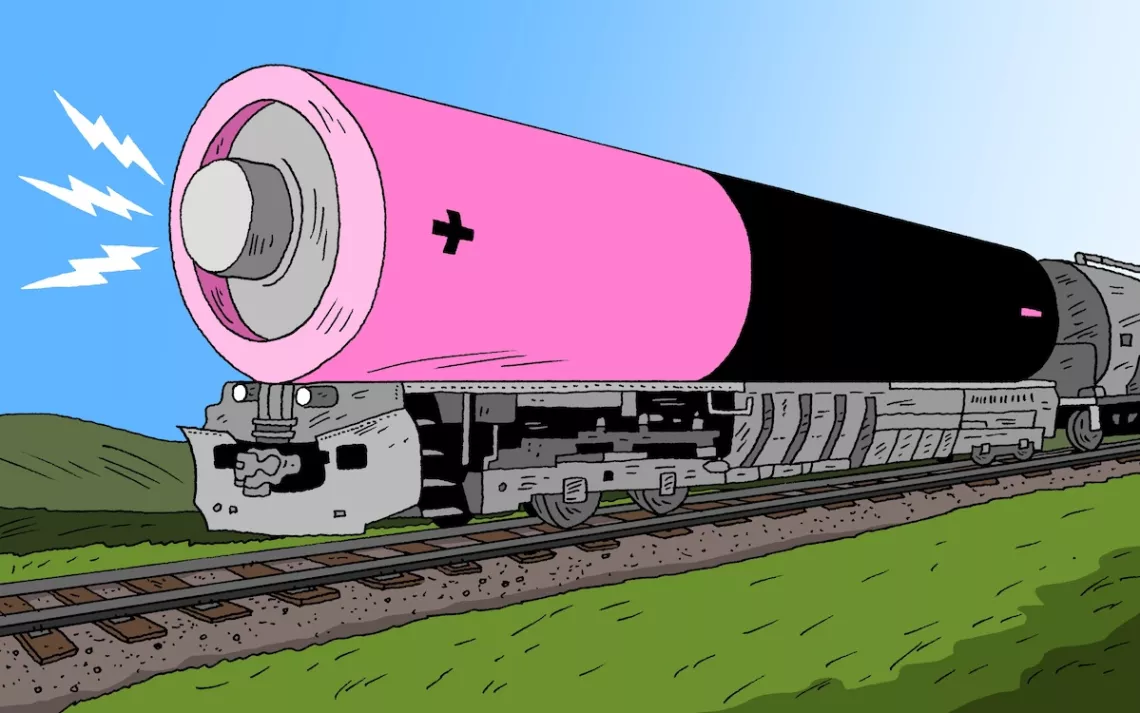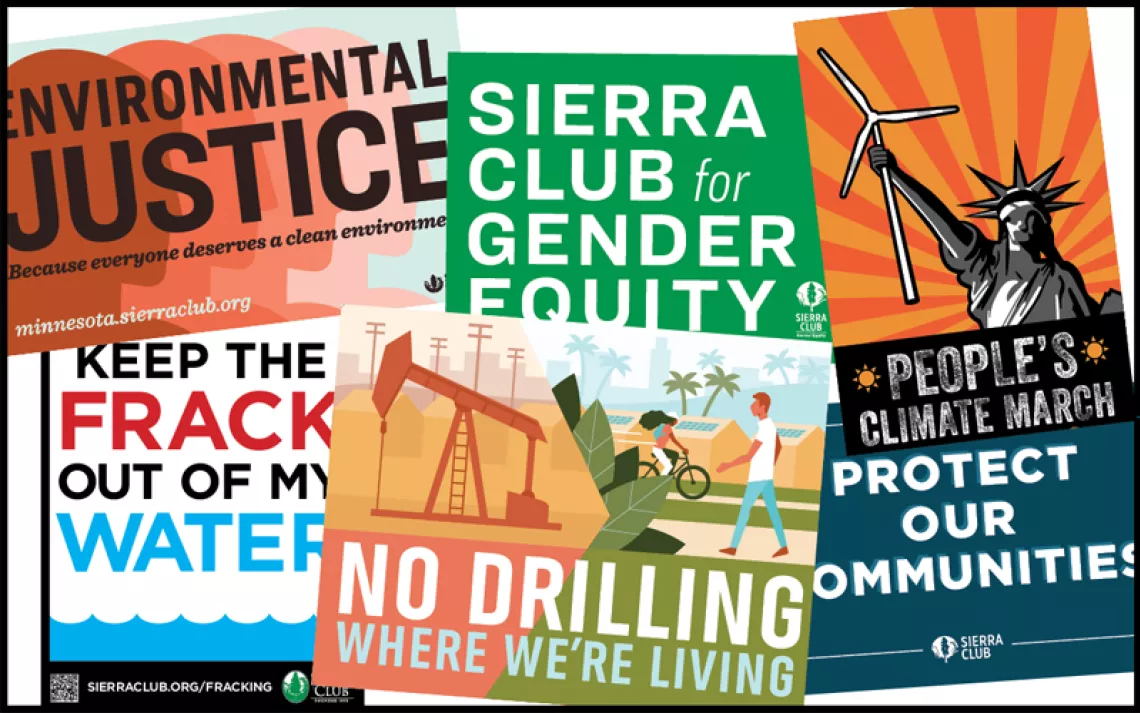ICYMI: First Battery Locomotive, Menopausal Chimps & No Thanksgiving Crab for You
Environmental news of the week for busy people

Illustration by Peter Arkle
The world’s first 100 percent electric, battery-driven, heavy-haul locomotive debuts in Pennsylvania.
Wildfire smoke is responsible for more than 4,000 US deaths a year.
A deposit of natural “white hydrogen” estimated at between 6 million and 250 million metric tons is discovered under Lorraine, France.
Hurricane Otis developed into a catastrophic Category 5 before striking Acapulco, Mexico, with gusts up to 205 miles per hour, among the strongest ever measured. More than 100 people are missing or dead.
Extreme weather in Spain and Italy causes the price of olive oil to double.
A quarter of all ocean pollution comes from cruise ships.
A new study finds that if the world continues to burn fossil fuels at the current rate, by early 2029 it will be too late to avoid surpassing the critical climate threshold of 1.5°C above pre-industrial levels.
US oil production in October 2023 hits an all-time high.
Thousands of Venezuelans donate their hair to soak up oil leaking from decaying pipes into Lake Maracaibo.
The US infant mortality rate rose by 3 percent in 2022, the first increase in 20 years.
The Interior Department okays the 176-turbine, 30-gigawatt Coastal Virginia Offshore Wind project. When it goes online in 2030, it will be the nation’s largest wind farm and the fifth to be approved by the Biden administration.
Ørsted Americas pulls the plug on its two Ocean Wind projects off New Jersey, blaming inflation, high interest rates, and supply-chain difficulties.
No Thanksgiving crab again this year in California—the Dungeness crab season is delayed for the sixth year in a row to minimize the risk of humpback whales getting entangled in trap and buoy lines.
Four in 10 Americans reject evolution, and a plurality believe that humans were divinely created.
Representative Mike Johnson of Louisiana, the new Speaker of the House and second in line for the presidency, has advocated that the Bible be taught in public schools as “an accurate record of history.”
Chimpanzees experience menopause.
The UAW reaches a tentative agreement with the Big Three US automakers. Besides giving workers a major wage boost, the agreement opens the door to include workers at new EV battery plants to join the union and be included in the contract.
The California Department of Motor Vehicles suspends the permit of robo-taxi company Cruise to operate driverless cars in San Francisco after the company fails to disclose that, after running over a pedestrian who had been hit by another car, its vehicle dragged her body another 20 feet.
Deadly avian flu has spread to Bird Island in Antarctica, home to many endangered species of birds including a large penguin colony.
The American Ornithological Society will change the common names of birds named after people as well as those with names that are either racist or exclusionary.
Reports of visitors feeding bears and attempting to hold a cub lead the National Park Service to close an eight-mile stretch of the Blue Ridge Parkway in North Carolina to protect the animals.
Wolves on Alaska’s Katmai Peninsula are hunting and killing sea otters and harbor seals.
 The Magazine of The Sierra Club
The Magazine of The Sierra Club


